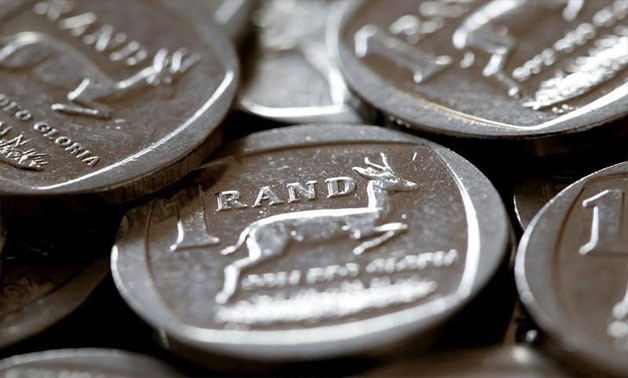
South African Rand coins are seen in this photo illustration taken September 9, 2015 - REUTERS/Mike Hutchings/File Photo
LONDON - 24 January 2018: Most emerging market currencies climbed on Wednesday, with China’s yuan and South Africa’s rand both touching more than two-year highs as the dollar wallowed in its weakest run since 2010-11.
One side-effect was the first fall in emerging equities in almost two weeks, but it was the currency moves that grabbed the attention.
Asia saw multi-year highs for the yuan, Thai baht, Malaysian ringgit and Singapore dollar , but it was the resurgent rand that made the biggest splash as it broke through 12 per dollar for the first time since mid-2015.
“We are seeing a weakening of the dollar so demand for emerging markets’ assets is very strong. It had been strong for a while now but today it is particularly strong,” said Crédit Agricole Senior Emerging Market Strategist Guillaume Tresca.
He added most of good news around the rand, centred on hopes that a shift to a more stable leadership is underway, was now probably priced in following its 20 percent surge against the dollar since November.
Turkey’s lira was notably stronger too at 3.75 per dollar . It, like the rand, was sickly for much of last year due to political unease, but has rallied hard since - albeit not in such a straight line.
Turkey’s military offensive into the Kurdish-dominated Afrin region of northwest Syria continued, but at the Davos World Economic Forum, Deputy Turkish Prime Minister Mehmet Simsek tried to ease worries about U.S. sanctions on its banks.
He said lender Halkbank was now working closely with the U.S. Treasury and Justice Department after a U.S. jury found one of its executives guilty in an Iran sanctions-breach trial.
Mexico’s peso was also on the front at 18.6 per dollar despite the ongoing nerves about a U.S. withdrawal from the NAFTA trade pact that the two countries share with Canada.
It wasn’t all one way traffic though. Brazil’s real weakened more than 1 percent as the country braced for ruling later that could bar former President Luiz Inacio Lula da Silva from running in this year’s presidential race.
His exclusion would radically alter the shape of the campaign. Lula is the clear favourite, with polls showing he currently holds double the share of the vote than nearest rival, the far-right congressman and former army captain Jair Bolsonaro.
Tens of thousands of Lula supporters rallied in the streets of Porto Alegre on Tuesday to protest against what they see as the political persecution a leftist icon, who was sentenced to nine and a half years in prison for accepting a bribe.
Meanwhile Venezuelan President Nicolas Maduro looked sure to stand for re-election in a presidential vote due by the end of April where the ruling Socialists hope to trump a squabbling opposition despite an economic crisis and foreign sanctions.
Emerging stocks saw their first fall in nine sessions, halting a rally which has already seen an 8 percent rise in MSCI’s 27-country emerging economy index this year.
Nigerian stocks extended a recent run of losses too, dropping more than 1 percent amid a standoff between the country’s presidency and parliament over the confirmation of central bank policymakers.
The bank had been due to announce a decision on rates on Tuesday, but could not hold a meeting as it was unable to form a quorum.

Comments
Leave a Comment